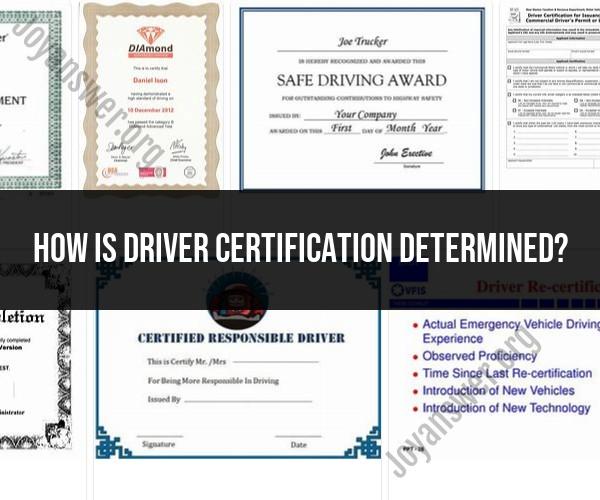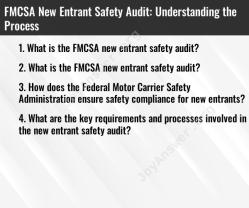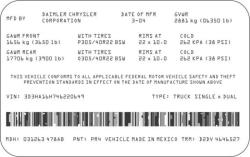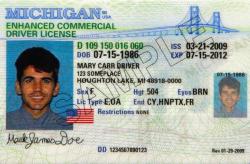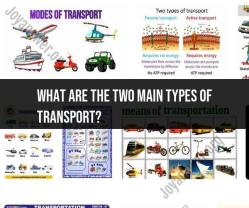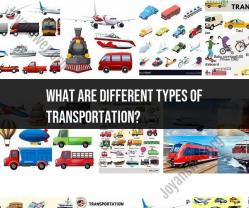How is driver certification determined?
Driver certification criteria refer to the requirements and qualifications that individuals must meet to obtain certification to operate certain types of vehicles. These criteria ensure that drivers have the necessary skills, knowledge, and safety awareness to operate vehicles safely and responsibly. Driver certification criteria can vary based on the type of vehicle, the jurisdiction, and the specific regulations in place. Here's a general overview of driver certification criteria:
1. Driver's License:A valid driver's license is typically a fundamental requirement for certification. Different types of vehicles may require different classes or endorsements on the driver's license.
2. Age Requirements:Certain types of vehicles, such as commercial trucks or buses, may have minimum age requirements for drivers due to the level of responsibility and complexity involved in operating these vehicles.
3. Medical Fitness:Drivers may need to meet specific medical standards to ensure they are physically and mentally fit to operate a vehicle safely. This may involve passing a medical examination conducted by a certified medical professional.
4. Knowledge and Training:Drivers must have a certain level of knowledge about traffic rules, regulations, and safety practices. They may need to complete training programs, such as driver education courses or specialized training for specific types of vehicles.
5. Skills Assessment:Drivers often need to demonstrate their practical skills in vehicle operation. This may involve passing a road test that assesses their ability to maneuver the vehicle, follow traffic rules, and perform essential driving tasks.
6. Criminal History Check:In some cases, drivers may be subject to a criminal background check to ensure they do not have disqualifying convictions that could affect their ability to operate a vehicle safely.
7. Vision Requirements:Good vision is crucial for safe driving. Some certifications may require drivers to meet specific vision standards, such as visual acuity and peripheral vision.
8. Language Proficiency:Drivers may need to demonstrate a certain level of language proficiency to ensure they can understand road signs, communicate with other drivers, and respond to emergencies.
9. Endorsements and Specializations:For certain vehicles or driving scenarios, additional endorsements or specializations may be required. For example, commercial truck drivers may need hazardous materials endorsements or passenger endorsements for transporting passengers.
10. Periodic Renewal:Certifications are often not permanent and may require periodic renewal. This ensures that drivers continue to meet the standards and remain up-to-date with changes in regulations.
11. Vehicle-Specific Requirements:Different types of vehicles, such as commercial trucks, buses, motorcycles, and passenger cars, may have specific criteria tailored to their unique characteristics and the level of skill required to operate them safely.
It's important to note that driver certification criteria can vary significantly between jurisdictions and regions. Additionally, changes in regulations and laws can impact these criteria over time. If you're seeking information about specific driver certification criteria, it's recommended to refer to the relevant local or national transportation authorities, driver licensing agencies, or regulatory bodies for accurate and up-to-date information.
